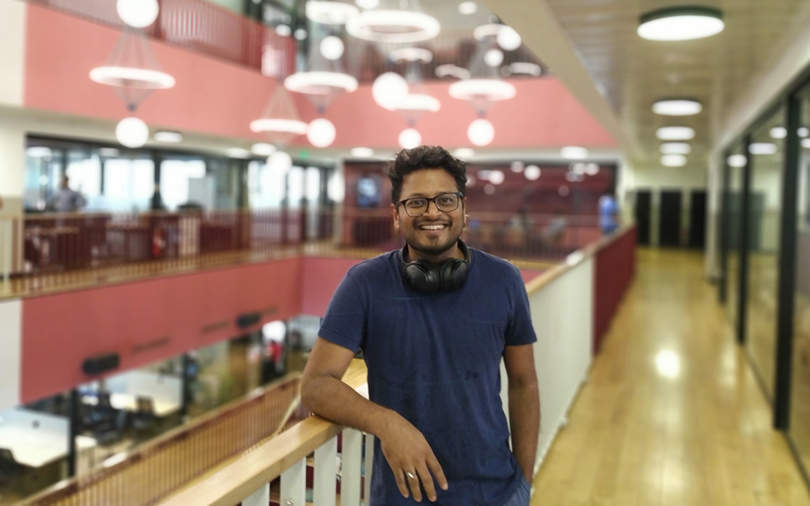
Why Euler Systems chose on-premise micro-services over SaaS


In a world of monolithic applications and unwieldy monster machines, Euler Systems Inc. goes by a rare philosophy: Act small, do one thing and do it really well. In other words, the company is a rare microservices provider in an era of Software-as-a-Service (SaaS) firms, offering customised on-premises products to each client in artificial intelligence (AI) and data rather than following a one-size-fits-all approach that seems the norm these days.
In fact, the firm's customised software built using microservices, which is easier to scale and maintain than the big and brittle architectures that pass for SaaS, so impressed venture capitalists they suggested turning each coded platform into a company itself, for the sake of profitable investment.
And the sheer revenue potential of those coded platforms is best exemplified by online beauty product seller Nykaa when it decided to go micro in 2017, with the help of Mumbai- and Silicon Valley-based Euler.

After a revamp of its search and recommendation engine, the beauty e-tailer saw its click-through rate (CTR) shoot up by 500%. From 3-4% of Nykaa's sales, today recommendation accounts for around 17% of sales. Over the next couple of years, it is expected to go up to 20-23%, depending upon how well the machine learning (ML) engine learns from the customer data it is being fed on.
"The increase in CTR is because the customers increasingly find the search or recommendation relevant for them. We are almost like the largest category for Nykaa now. We had to rebuild the entire backend architecture and it took us almost six months," says Krishna Chaitanya Raghav, co-founder of Euler.
The microservices firm, founded in early 2017 by Raghav, Sandeep Kadam, and Himanshu Nautiyal, has only eight employees and has worked with only 10 customers so far. It has purposefully avoided a SaaS strategy, which could have helped the company to grow bigger and faster.

"The idea was to be a niche player," says Raghav, adding that a generic product cannot deliver the results produced for Nykaa, which deploys two to three engineers on a platform for three to four months.
"We saw a shift in how companies were looking at data. We also found that the companies had data science teams but hardly any idea on what, how, and when to use the data," he says.
Today, the microservices firm’s 10 customers include Indonesian ride-hailing firm Go-Jek, Religare, Knab Finance, Simpplr, Bounce, LodgIQ and NerdWallet. For Go-Jek, Euler developed a complaint-ticket categorisation platform, enabling the ride-hailing firm to beat the industry's best performance in identifying complaints by a margin of 15%, claims Raghav.

Explaining the architecture behind platforms such as those built for Go-Jek, Raghav says, "When you want to work on deep AI systems of large enterprises, the services are often deployed in their private data centre and not in the cloud. Hence, a SaaS model will not work for the kind of work we do. Our expertise cannot be traded for a different business model."
Euler follows different revenue models depending upon the customer's requirements. The company could take a small commission on the sales, sell the product or even receive recurring monthly payments. "With Nykaa, we had given them five times the return on investment within the first six months," says Raghav.
Origin of Euler and a pivot

Named after 18th-century Swiss-born mathematician Leonhard Euler who developed many concepts that are integral to modern mathematics, the company did not exactly start out as a microservices firm building AI and data solutions.
Its team had built an e-commerce price comparison and deals platform called Gludo in mid-2015 -- after a year of crawling an entire catalogue of 40 million products sitting on Indian e-commerce platforms. However, the company could not raise enough funding to fuel its ambitions in an increasingly competitive landscape, prompting a shift in 2016 to microservices for data and AI.
This focus on data owes a lot to chief executive Nautiyal's background in the space. Nautiyal, who earlier founded a job search engine Bixee, had headed Yahoo!'s data science team. Raghav, who was previously with a US-based hedge fund, joined in 2016 during the pivot. Nautiyal and Raghav were IIM-Bangalore batchmates from 2009.

Euler, which had raised a seed funding in early 2016 from friends of the founders, readied its first product in 2017.
Targeting large enterprises
Euler, which has hit $1 million in revenue for 2018-19, had raised a small round of funding from former senior vice-president of Infosys Subhash Dhar earlier this year, who will help the company to crack large enterprises in the US, pitting the microservices provider against much larger rivals.

"Unlike selling to new-age technology startups or unicorns, large enterprise deals tend to be procedural and we had no clue of how to do it. A demonstration of past success alone will not help the company succeed," Raghav says, hinting at the rainmaker role Dhar needs to play.
All enterprises have huge hordes of data and large technology companies are looking at exploiting this. However, Raghav adds that most in-house data science teams end up playing catch-up. "They first look at data that is already with the companies and then build rules. Then rules are turned into codes and then engineered into a product integrated into one's system. By the time a solution is ready, it is almost six months even in the best-case scenario," he says, hoping the company's business model and approach will be a big differentiator.
